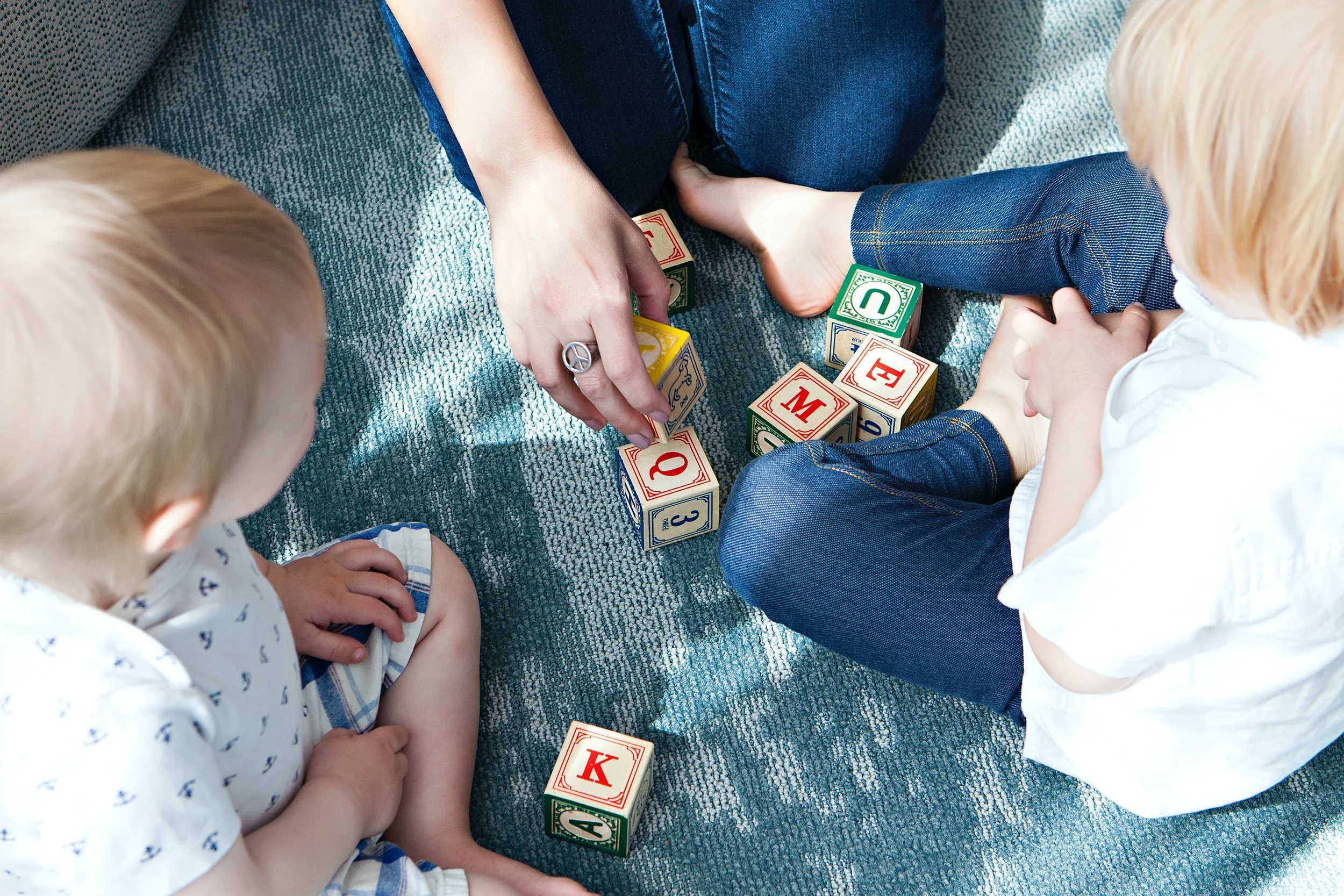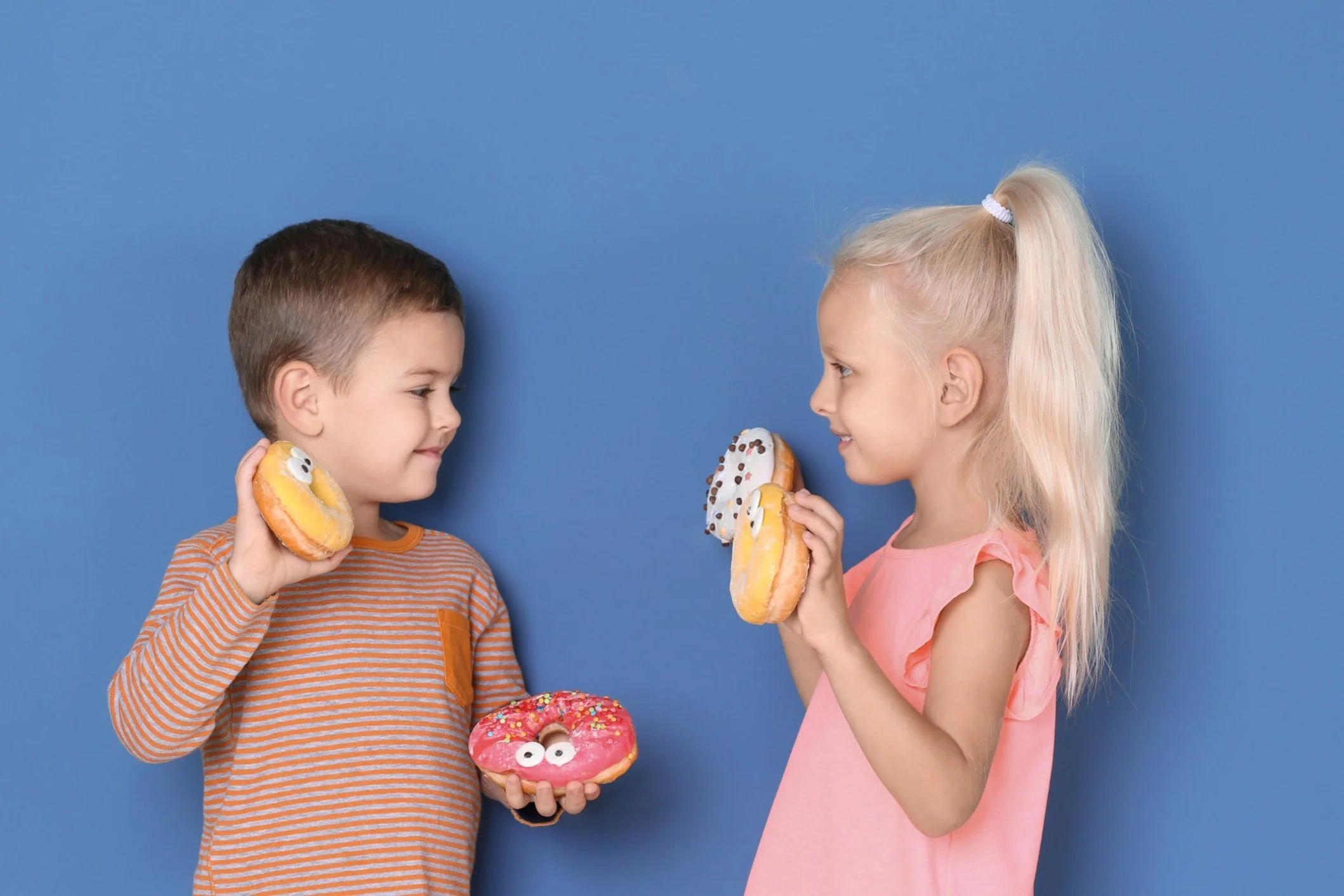Pre-linguistic Skills
There are many skills your baby needs to develop before they will speak their first true word. These skills develop during the first year and many children who begin therapy due to delays in their language development may have not acquired these skills or acquired them later than expected.
1
Eye contact- we have talked about the importance of eye contact before and as you can imagine, eye contact is one of the first pre-linguistic skills to emerge. Babies start making eye contact around 6-8 weeks of age. It is a precursor skill to joint attention (see below). Research has shown that eye contact helps your baby gather information, relate to voices and people, and aids in beginning comprehension. Research has even shown eye contact to sync your brainwaves with your baby!
2
Responding- around 2 months, babies start to respond to facial expressions by smiling at you when you smile at them. By 3-4 months of age, laughing and squealing emerge to show delight in your actions. Your baby is starting to understand that their reactions mean something!
3
Purposeful noises- babies begin to babble and coo with intention around the age of 4 months. It is at this time when babies start to understand the link between sounds used with intention results in needs being met. The baby has essentially made the connection of “when I make this sound, Mommy/Daddy smiles at me and l like Mommy/Daddy smiling at me. I’ll do this more.”
4
Turn-taking- it is also around 4 months that babies begin turn-taking with their caregivers. You babble at your baby and your baby babbles back! While no true words are being used yet, this is teaching the baby how language (and conversations) work.
5
Imitation- around 6 months of age is when a baby will begin to imitate what a caregiver is saying or doing. For example, when you were turn taking with your baby, you might have been saying “ma ma ma” but your baby might have been making a mish-mash of sounds and coos. Around 6 months is when you can start to expect your baby to repeat what you say. You say “ma ma ma” and they say “ma ma ma ma ma ma.” This is also when you can expect your baby to start using purposeful gestures (see below).
6
Joint/Shared attention- this is when you and your baby are both interacting with, for example, the same toy. Joint attention is typically achieved by your baby looking at you, looking back at the toy, and then looking at you. It is the unspoken version of “Are you seeing what I’m seeing?!” Joint attention is a foundational skill for understanding that language can be used to engage with others and the environment. Joint attention should emerge around 9 months of age.
About the Author
Janene Besch
Director/Speech-Language Pathologist
Janene Besch, née Martin, holds a Master’s degree in Speech Language and Hearing Sciences from San Diego State University and a Bachelor’s degree in Psychology from the University of California at San Diego. Janene is a member of the American Academy of Private Practice in Speech Pathology
Read more >
More Stories
Blog
What’s the Deal with Dyslexia?
Is your preschooler having difficulty with rhyming and learning letter sounds? Is your kindergartener getting frustrated while learning to read? It may be time to consult the literacy experts and dive into a discussion about dyslexia!
It’s All Connected: Language and Learning
Oh the pressure of parenthood. You are constantly told that EVERY decision you make will impact your child for the rest of their lives. Sounds scary right?! Well, what if I told you that you have an opportunity to gain information and take action to lay a foundation for lifelong learning?
Pets Are Paw-some Speech Buddies
We all love our pets. They are the backbone of our families and give us that soothing cuddle at the end of a long day. BUT have you ever thought about how pets can also contribute to your child’s speech and language development?
Engaging Minds: The Power of Sensory Bins.
Discover the magic of sensory bins for kids! Engage their senses, boost cognitive development, and enhance language skills through fun play. Create beach or zoo-themed bins and watch them learn and explore! Sensational summer awaits! Contact us for expert support.
Summer is a time of fun, sunshine, and opportunities for continued learning and exploration. For parents that may be less familiar with the educational impact of a long break, the “summer slide” is the term used to describe the …
The world is our playground! Play is critical to language development and presents children with an extraordinary amount of learning opportunities.
National Donut Day is June 2nd. Here is a fun craft to celebrate while working on speech skills!
Communication: Beyond the Basics of Speech and Hearing
As a parent, it can be frustrating to guess what your child wants or needs, especially when you have a never-ending to-do list on top of it all. And what is every parent’s thought during this stressful whirlwind of tantrums and tirades? “JUST TELL ME WHAT YOU WANT!”
After 10 years of serving Northern Virginia, we are proud to announce the addition of OWLS Therapy in Philadelphia’s Main Line!
Picture this: You are sitting in the doctor’s office filling out a questionnaire about your child’s development and whether or not they are showing signs of autism.











